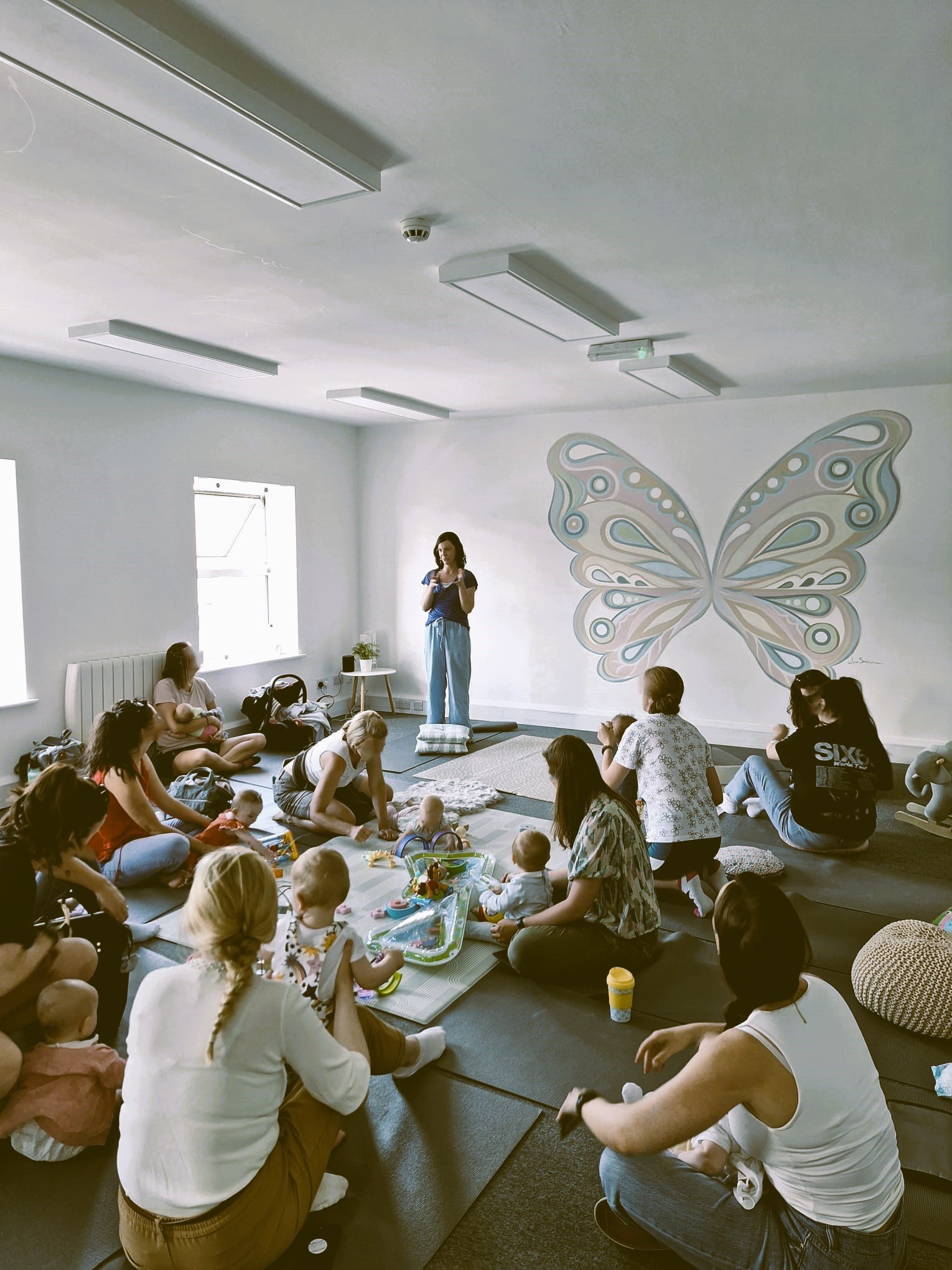
MOTHERHOOD MATTERS SERVICES
Supporting you in Your Motherhood, Your Way.
You might be quietly, secretly, questioning whether your motherhood matters, because it doesn't feel like the countless, unseen tasks you carry out every day, every hour, are seen, valued, or matter. You deserve space to explore all subjects, situations and matters that arise in motherhood - practical, emotional, mental, social, economic, societal, professional – including, and maybe especially, the parts that aren't talked about enough.
Mothers, YOU matter here.
When you feel overwhelmed and blindsided by your motherhood experience, you lose connection with your inner truth and sense of self. You need support to overcome this.
And that’s where Motherhood Matters comes in. This is where you’ll learn about self-compassion and matrescence, concepts which will completely change your experience of motherhood:
Self-compassion is based on 3 core beliefs: I'm human, it's not just me that feels/thinks these things, I am not my thoughts (especially the mean ones). Strengthening these beliefs will improve your thoughts, emotions, self-care routines and relationships.
Matrescence describes the physical, hormonal, emotional and social changes that occur as part of the transition into the role of motherhood. These changes mirror the developmental changes both girls and boys experience in adolescence. They are completely normal - while they can be challenging, and cause identity shifts, there is nothing wrong with you, and you are doing nothing wrong.
These pillars are the basis of Motherhood Matters. These concepts will support you in lowering your expectations, giving yourself credit for the wonderful job you’re doing, and allowing space for yourself on your priority list.
Remember Mama, you matter.
Motherhood Matters Circles
Over the course of 6 weekly, in-person or online meet-ups, connect with other new mums who are having similar experiences, challenges and wins, and learn skills and tools that will support your thoughts, feelings and relationships.
Babies-in-arms welcome to the in-person circles!
Walk, Talk and Coffee
I'd love to join you and your baby on your morning walk in your local park (South Dublin). What we discuss will be completely confidential, and will be met with compassion and without judgement, just like in a therapy session.
1:1 Therapy
A deeper exploration to support you with anything that may be blocking your contentment and enjoyment of motherhood, to work towards developing a greater sense of ease and joy. These sessions are in ZestLife Churchtown or online.
Workshops and Talks
I am passionate about breaking the myth that motherhood has to be a struggle, and to achieve this I believe that knowledge is power. Learning about matrescence, self-compassion and physical, mental, emotional and relationship self-care has been transformative to my motherhood journey, and I love to share this knowledge to support new mums, so that they don’t have to struggle as much as I did at first.
I offer workshops on various aspects of early motherhood and the challenges new mothers face. Upcoming workshops will be announced here.
If you work with a group of mothers and would like me to lead a workshop with them, or chat with them informally, I would be delighted do so. Please contact me below and we can discuss how I can meet your group’s needs.
Why I started Motherhood Matters
10 years after the birth of my daughter I still find the loneliness and overwhelm I experienced when she was first born quite shocking and upsetting, especially because I don’t think there is anything I could have done differently to prevent it – despite my recently completed psychotherapy training, I didn’t know what I didn’t know, and I did not know the impact that becoming a mother was going to have on me, because nobody was talking about it.
This makes me upset and disappointed for myself in those early weeks and months, and 10 years later I feel that things haven’t changed enough regarding how the challenges mothers face are acknowledged and supported in society, so there are mothers still being caught unawares, and as a result they experience the same confusion, self-doubt and loneliness that I did. This makes me angry. No mother should feel this way – motherhood is the most important job there is, and mothers should be fully recognised, valued and supported emotionally, practically and financially.
Through Motherhood Matters I’m supporting new and new-again mums with the identity changes that the transition into motherhood bring. My passion for my work comes from my lived experience – I strongly believe that no mother should ever feel how I felt when I first became a mother. While supports for new mothers are improving, I believe the changes are coming too slowly because new mothers are still suffering due to lack of preparation for the realities of motherhood, and the unrealistic expectations and pressures that arise from that. Now I use my experience, and the coping strategies I have learned to implement, along with my psychotherapy training, to support mums to find confidence, joy and ease in their motherhood.
The Motherhood Matters Formula:
Support: A few months after my daughter was born I worked with a very supportive therapist. A mother herself, she “got me”, and helped me to make sense of my confusion and overwhelm. When I was pregnant with my son, and in the months after he was born, I did everything I could to build a support group of mums, and that made - and continues to make - a world of difference to my motherhood journey.
Self-Care: I also developed a personal self-care plan, and experimented with ways to support myself physically, mentally, emotionally and in my relationships. While the details of this plan have adapted over the years as my children are growing and my circumstances change, the foundations of ensuring my physical, mental, emotional and relationship needs are met continue to be essential.
Understanding matrescence and self-compassion: Everything I do to support myself and the mothers I work with is through the lens of matrescence and self-compassion. Motherhood doesn’t occur in a vacuum, and these concepts help me to adapt to my new identity and my place in the world.
FAQs
-
Psychotherapy is often called “talk therapy”, or simply “therapy”. It is a form of support for people to identify and change emotions, thoughts and behaviours, which may be unhelpful, distressing or overwhelming.
These emotions, thoughts and behaviours often develop unconsciously as protective coping mechanisms in response to stressful situations. Over time we can outgrow the need for them, or they may become so strong that they can be restrictive and can negatively impact our relationships with others, and with ourselves. Therapy helps to uncover the coping strategies which are no longer serving us, explore when and why they were developed, and gently replace them with more helpful and healthy support systems.
-
A psychotherapist supports you to explore how past experiences are impacting current emotions, thoughts and behaviours, and to develop more helpful coping strategies in the long-term.
A counsellor generally works with finding solutions to current challenges and this work is usually short-term.
A psychiatrist is a medical doctor who diagnoses mental health challenges, and may prescribe and monitor medication. They may or may not also offer talk therapy.
A psychologist studies the science of human thoughts, emotions and behaviours. Professionally qualified psychologists specialise in areas such as clinical, counselling and educational psychology.
As an accredited member of the Irish Association for Counselling and Psychotherapy (IACP) I offer both counselling and psychotherapy.
-
Absolutely not! I believe everybody can benefit from therapy and the opportunity to better understand themselves. Seeking support from a therapist is no different to going to a physiotherapist with a sore knee, seeking advice from a dietician about digestive issues or going to a personal trainer to help you to improve your fitness.
I know it can be dauting to reach out to a therapist, but don’t you deserve to feel mentally healthy as well as physically healthy?
-
The foundation of successful therapy is a strong therapeutic relationship, and also a willingness to develop a new relationship with yourself. Like any relationship, this requires commitment and consistency. I encourage people to give the process at least 6 sessions to get a sense of what’s involved, and to begin to feel the benefits. During this time, we will discuss what you are hoping for from our time working together, and I will regularly check in with you about how you feel the process is going. Therapy is your safe space to receive the support you deserve in order to thrive.
-
Many health insurance policies cover the cost of therapy so please check this with your health insurance provider. I will provide you with receipts and my IACP accreditation number for any claims you are eligible to make.
-
Yes, babies are welcome at 1:1 therapy sessions and all Motherhood Matters services. Walk, Talk and Coffee sessions are specifically to facilitate mums with babies.
-
Please contact me here and I will do my best to answer it.

“There’s no way to be a perfect mother and a million ways to be a good one.”
Jill Churchill








